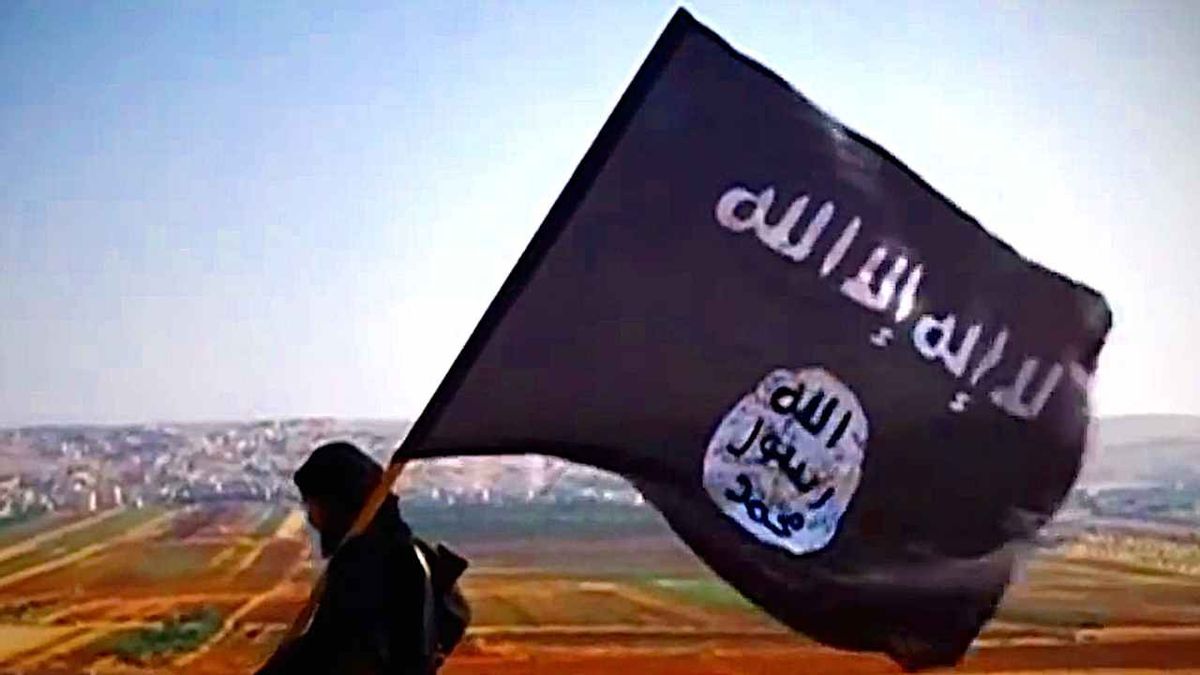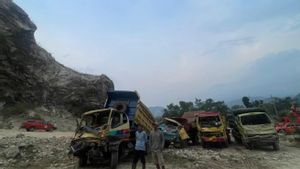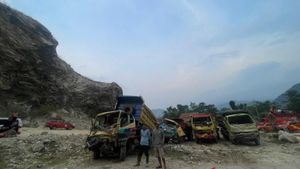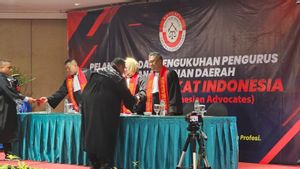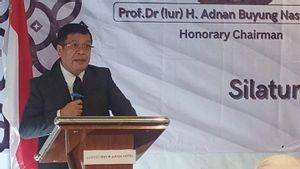JAKARTA - Nigeria's top general said on Thursday that Abu Musab al-Barnawi, the leader of the West African Province (ISWAP) ISIS rebel group, had been killed.
ISWAP is an offshoot of the insurgent group Boko Haram which has been fighting Nigeria's armed forces for 12 years. The two militant groups then attacked each other.
The conflict between the rebels and Nigeria's armed forces, which has also spread to neighboring Chad and Cameroon, has killed about 300,000 people and left millions dependent on aid.
"I can authoritatively confirm to you that Abu Musab has died," Lucky Irabor, chief of the defense staff, told reporters at the presidential villa in Abuja, without elaborating.
Vincent Foucher of France's National Center for Scientific Research, an expert on rebel groups, said sources informed him that al-Barnawi was wounded in August in clashes against Boko Haram fighters and died later, possibly in September.
He said that while it was difficult to obtain solid information, reports of al-Barnawi's death seemed plausible, as ISWAP leaders had released a number of lengthy audio recordings in May and June but had been completely silent since August.
Al-Barnawi is the third leader of the Islamic State insurgent group in West Africa to be killed this year, after Abubakar Shekau of Boko Haram in May and Adnan Abu Walid al-Sahrawi of ISIS in the Greater Sahara (ISGS) in August.
Since Shekau's death, thousands of Boko Haram fighters have surrendered to Nigeria's armed forces, but Foucher said al-Barnawi's death is unlikely to have the same impact on ISWAP, as the group has gone through a change of leadership.
Al-Barnawi has stepped down between 2019 and 2021, with two or possibly three other leaders taking over during that period.
"The situation of the two groups is very different. Shekau is the autocratic leader of an organization centered around him," said Foucher.
Founder's sonAl-Barnawi is the son of Boko Haram founder Muhammad Yusuf, whose murder by police in 2009 was one of the triggers for the group to launch a full-scale insurgency in northeastern Nigeria.
After Yusuf's death, Shekau became the leader of Boko Haram. Under his leadership, he carried out a campaign of bombings, assassinations, and mass kidnappings. In 2014, the group rose to worldwide prominence when they kidnapped 270 girls from their school in Chibok City.
In 2015, Shekau pledged allegiance to ISIS, but the following year ISIS named al-Barnawi as its leader in West Africa.
Shekau refused his demotion and the two parted ways, with al-Barnawi moving his ISWAP fighters to the shores of Lake Chad, where they became the dominant rebel.
In June this year, al-Barnawi announced in an audio recording that Shekau had died in May, after detonating an explosive device while being chased by ISWAP fighters after fighting.
In previous years, Nigerian authorities mistakenly announced Shekau's death several times.
France announced a month ago that its forces had killed ISGS leader al-Sahrawi. ISGS is an ISIS affiliate in the Sahel, a piece of land beneath the Sahara Desert that includes countries such as Mali, Niger and Burkina Faso.
The degree of coordination between ISWAP and ISGS is unclear, but there are signs of increased contact between the two branches in recent years, especially as ISGS militants are expanding their influence in southern Niger.
The English, Chinese, Japanese, Arabic, and French versions are automatically generated by the AI. So there may still be inaccuracies in translating, please always see Indonesian as our main language. (system supported by DigitalSiber.id)
